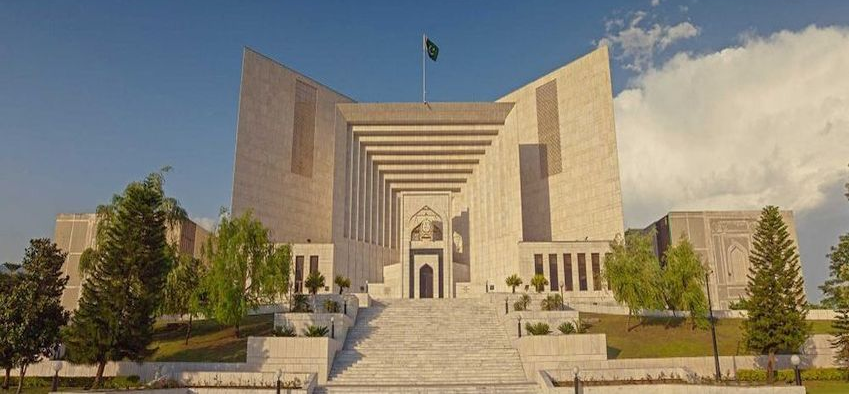The Ahmadiyya Community cannot represent themselves as Muslims or use Islamic Terminologies --- Supreme Court of Pakistan
Islamabad 11-10-2024: The Supreme Court of Pakistan, in a landmark decision, has reiterated and clarified the constitutional status of the Ahmadiyya community, reaffirming their designation as non-Muslims as per Article 260 of the Constitution of Pakistan. The judgment was delivered by a three-member bench, led by Mr. Chief Justice Qazi Faez Isa, in the case titled Federation of Pakistan and Prosecutor-General, Punjab Vs. Mubarak Ahmed Sani and another. The decision came in response to a Criminal Miscellaneous Application seeking correction of a previous judgment dated July 24, 2024.
The Court’s verdict maintains the validity of past constitutional amendments and legislative provisions that define the religious status of the Ahmadiyya community. The bench ruled that the Ahmadiyya community cannot represent themselves as Muslims or use Islamic terminologies, and upheld the restrictions placed by Ordinance XX of 1984.
The Court reinforced that the definition of “Muslim” under Article 260 is constitutionally binding. It ruled that a Muslim must believe in the absolute and unqualified finality of the Prophet hood of Muhammad (PBUH). The Ahmadiyya community’s beliefs do not conform to this definition and, as such, they cannot identify as Muslims under the law.
The Court upheld the validity of Ordinance XX of 1984, which restricts the Ahmadiyya community from presenting themselves as Muslims or using Islamic symbols. The Court deemed these restrictions necessary for maintaining public order and protecting the sentiments of the Muslim majority.
The judgment reiterated the significance of the Second Constitutional Amendment of 1974, which legally declared the Ahmadiyya community as non-Muslims. The Court highlighted that this legislative decision is binding and remains a fundamental part of the constitutional framework.
While the Court acknowledged the constitutional guarantee of religious freedom under Article 20, it emphasized that these freedoms are subject to reasonable restrictions in the interest of public order and morality. The Ahmadiyya community’s attempts to represent themselves as Muslims fall outside the ambit of protected religious freedom due to the constitutional provisions.
The Court referenced several landmark decisions, including (PLD 1985 Federal Shariat Court 8 and 1993 SCMR 1718) (Zahoor-ud-Din Vs. State), which previously validated the constitutional and legislative measures taken against the Ahmadiyya community.
The Court invited and considered input from several prominent Islamic scholars and religious leaders to better understand the theological implications and societal impact of the judgment. Scholars, including Mufti Taqi Usmani and Maulana Fazl-ur-Rehman, presented their views on the issue.
The current judgment also corrected errors in the original decision dated July 24, 2024, providing clarifications on the legal position of the Ahmadiyya community and ensuring that the judicial record reflects the correct interpretation of constitutional and legal provisions.
The Supreme Court of Pakistan decision has significant implications for the Ahmadiyya community and reaffirms the constitutional boundaries established by the state. The Court stated that all citizens, including minorities, must respect and comply with the Constitution and the laws of the land. The ruling is expected to strengthen existing legislative measures and provide clarity on the legal status and rights of religious minorities in Pakistan.
Powered by Froala Editor








